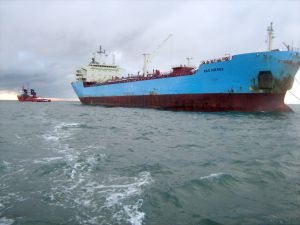SRT Marine Systems – looking for early bullish news

SRT Marine Systems has a bright future ahead of it and looks undervalued, argues Mark Watson-Mitchell.
You would think that this little group should be worked off its feet, considering its business. However, the virus has slowed things down a bit – but I think that it is now time to see it being cranked up again.
SRT Marine Systems (LON:SRT) provides products and systems that deliver maritime domain awareness to vessel operators, infrastructure owners and government agencies.
Just think of all those French trawlers clearing fish from inside the UK fishing waters.
Just think of all the rubber dinghies packed with immigrants desperate to cross the English Channel from France and Belgium with the aim of enjoying British hospitality.
But that is just around our coasts.
Consider then that this company’s markets are global.
Today, 90% of global trade by value has to be transported from one place to the next by sea.
There are some 26m vessels floating in the world’s seas, 8m of those are commercial while 18m are purely leisure craft.
With over 361sq.km of ocean there are some 400,000 km of coastline.
And then think of all the thousands of major ports and waterways, the various infrastructure such as oil and gas platforms, the thousands of wind turbines, even all the navigation and monitoring buoys.
Since 1987, the group’s customers from around the world have relied upon SRT to provide them with solutions for their maritime monitoring, management and surveillance objectives.
SRT develops and delivers advanced maritime domain awareness technologies, products, and systems, with particular expertise in Automatic Identification Systems (AIS).
It really does have a massive arena upon which to present its products and services.
This group, which is based at Midsomer Norton, Bath, has specific target market segments – coast guards, fisheries, leisure and commercial, and environment. The main drivers for new business centre around safety, social, commercial, and security products.
Its customers include leading system integrators; marine electronics companies requiring white label AIS technology and product solutions; individual vessel operators; port owners and operators; and national authorities such as national defence agencies, fishery ministries, navies and coast guards who require sophisticated maritime surveillance and monitoring systems.
AIS technology was introduced by the International Maritime Organisation (IMO) and adopted globally as the standard maritime domain information technology system.
This sophisticated and complex mesh network technology enables the precise identification and monitoring of all marine traffic as well as a platform to communicate other information and services applicable to the marine environment.
SRT has deployed its internal wireless communication development abilities to create a range of AIS technology and product solutions which marine electronics companies can use to create their own unique AIS products.
It has invested heavily in the creation of a wide range of ‘best in class’ AIS products and a global network of customers each with their own established brands and sales channels.
The group develops and sells a range of core technology modules and standard OEM products to existing marine electronics companies who wish to have their own AIS product range
SRT’s products can be extensively customised for specific requirements. They range from high performance AIS transceivers to fully integrated national maritime surveillance systems which integrate extensive networks of sensors such as AIS, radar, closed circuit TV, and communications with intelligent command and control, display and data analytics.
A week ago the group announced its finals to end-March. They showed sales down from £20.56m to £18.91m and a major turnaround from the previous year’s £3.18m pre-tax profit to a loss of £6.89m.
That loss reflected a massive £3.49m in product development and property, plant and equipment spend. It also suffered a £3.92m impairment charge in respect of a 2017 tracking system contract.
Since the year end the Covid-19 impact has been heavy, in delaying contract signing and the finishing of various of its contracts on hand.
The group has a significant £550m sales potential but governmental wheels drive very slowly in such virus-ridden times.
Chairman Kevin Finn told shareholders that, “the business has made excellent progress with its products and customer engagement across both transceivers and systems divisions. Our transceivers business continues to perform well and system customers have resurfaced and activities on existing and new system contracts are ramping up. “
In July the group stated that it was now speeding up the provision of its project in the Philippines, for a fisheries management system. At the same time, it noted that discussions on some new Middle East contracts were close to being finalised.
Understandably, as yet there has been no revenue and profit guidance for the current year. However, I would hope that we will get some better indication of current-year trading and prospects at the 15 October AGM.
With its shares currently trading at 39.5p, the group is valued at around £65m.
Its shares were up to 55p at the end of 2019 and as low as 21p in late March.
Cautiously, I now set a 50p target price, looking for some early bullish corporate utterances to help engender investor interest.
Comments (0)